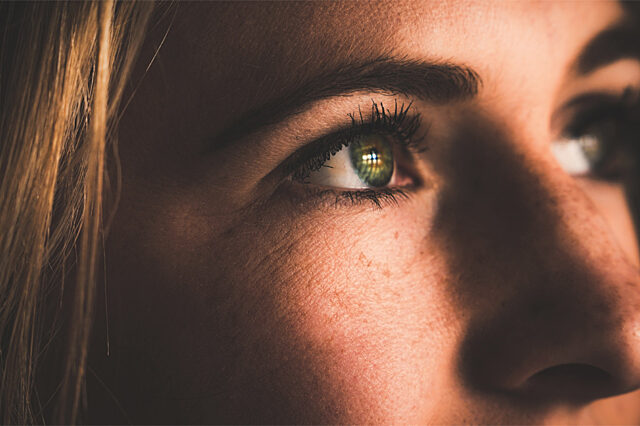Four Tips for Saving Your Vision!

March is “Save Your Vision” month, and now is a great time to learn how you can do more to protect your eyes. At UF Health, we want you to understand the importance of maintaining good eye health and how the impact of everyday activity affects our vision over time. With help from the American Optometric Association, The Vision Center, and physicians at the UF Health Eye Center, here are some tips that we can all use toward protecting and promoting our eyes for the future.
Get a Comprehensive Eye Exam
Comprehensive eye exams are key to knowing the health of your eyes. Professional eye care services offered by our physicians can let you know whether or not someone needs glasses, contact lenses, or corrective procedures to see better. Aside from general vision troubles and getting them corrected via eye examinations, dilated eye exams are the only way to detect common eye diseases such as glaucoma, diabetic eye disease and other age-related macular degeneration.
“Our vision is one of our most valuable senses,” said Matthew Gray, M.D., an ophthalmologist at the UF Health Eye Center who specializes in corneal and external ocular diseases, and refractive surgery. “A sizeable portion of the population, especially those over age 65, have some degree of visual impairment that can either be treated or could have been prevented. Early detection of eye disease by having a routine eye exam is the most reliable way to preserve your vision.”
Eat the right foods for eye health
The fabled tale about carrots helping our vision does not stray too far from the truth. Carrots are rich in beta-carotene and Vitamin A. Lack of Vitamin A leads to cataracts and even blindness in many cases. Eating a diet rich in fruits and vegetables has been heavily regarded through research as a good way to keep the eyes healthy.
Wear protective vision
We have learned through living in heat-intensive states in the South that the rays of the sun are no joke. Just as we use sunscreen to protect our skin from the powerful rays, sunglasses are not a fashion accessory but important tools for protecting our eyes from the sun’s ultraviolet rays. Be sure to purchase sunglasses that block out 99 to 100 percent of UVA and UVB radiation.
Other protective vision include safety glasses and eye guards when doing work that requires your eyes to be shield from chemicals or debris. Not only do you want to be sure to wear these things to protect your vision in the moment, you want to ensure that your eyesight will last as long as possible and not disappear in the blink of an eye.
Spend less time looking at screens
According to The Vision Council, “More than 83 percent of Americans report using digital devices for more than two hour per day and 53.1 percent report using two or more digital devices simultaneously, with 60.5 percent reporting experiencing symptoms of digital eye strain.” Modern cellphones and laptops are being updated to have features that aid our eye health over time such as “night mode” to reduce blue light. Digital eyestrain affects all ages and can be reduced through a variety of methods. For example, using preservative-free artificial tears available over the counter; following the 20-20-20 rule, which consists of taking a 20-second break from the screen every 20 minutes and looking at something 20 feet away; and increasing text size on devices to better define content on the screen.
About the author
